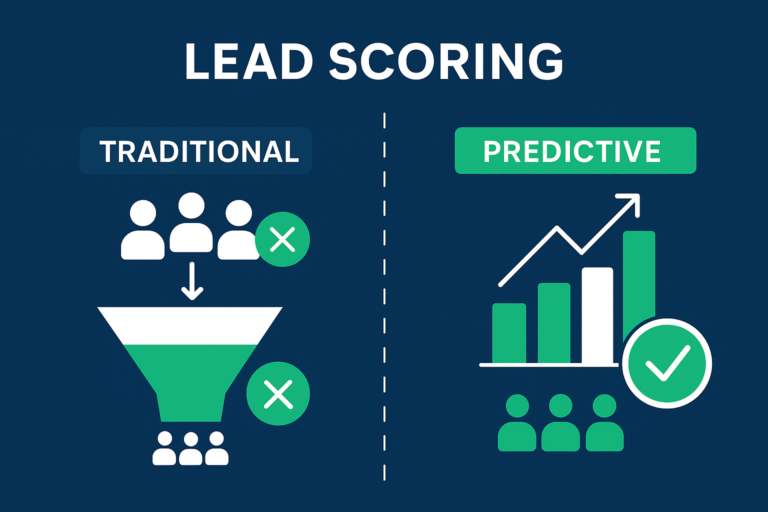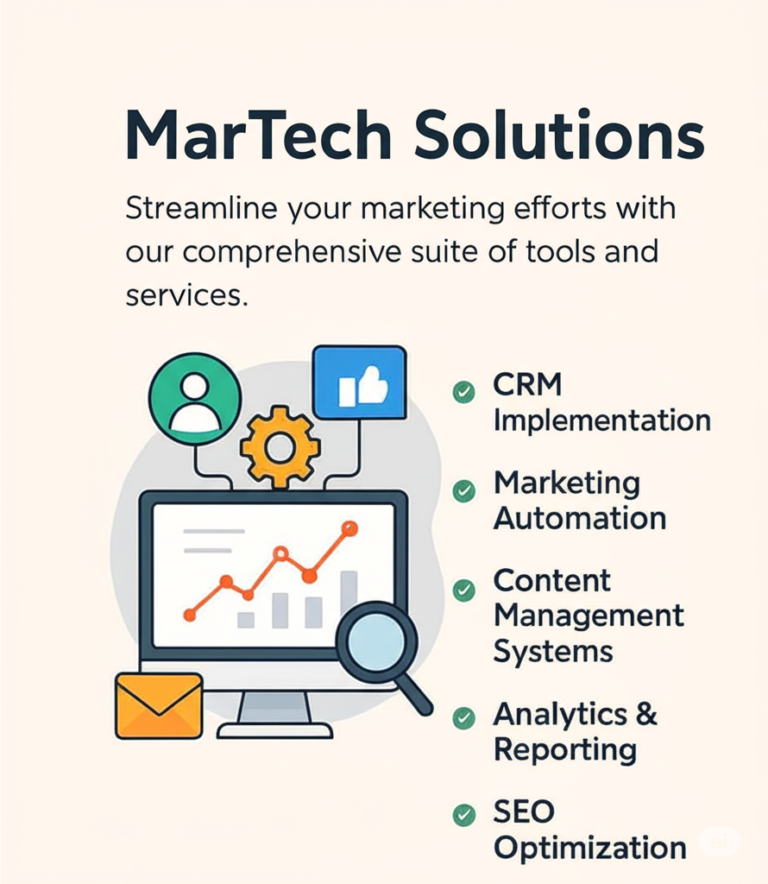
Lead Scoring 2.0: How Predictive Models Are Changing the Game for Small Teams
In 2025, small teams face a familiar challenge: How do you prioritize leads without burning time and resources? Traditional lead scoring models—based on assigning points for actions like email opens or website visits—helped. But in today’s fast-paced, data-rich environment, they’re no longer enough.
Enter Predictive Lead Scoring 2.0—an AI-driven approach that uses machine learning models to analyze customer behavior, intent, and fit, giving small teams the power to act like enterprise-level sales organizations.
So, what’s the difference between traditional lead scoring and predictive models? And how can your small team leverage this for maximum ROI? Let’s dive in.
Understanding the Basics
Traditional Lead Scoring
A rules-based approach where you manually assign points to actions:
+10 points if a lead downloads your eBook
+5 points for email clicks- -5 points if inactive for 30 days
Tools like HubSpot CRM or Zoho CRM often include these workflows. The catch? It’s limited by human bias and struggles to adapt as markets evolve.
Predictive Lead Scoring
AI-powered systems analyze historical CRM data, user behavior, and intent signals to predict the probability of a lead converting. Think beyond clicks—predictive models factor in social activity, firmographics, purchase cycles, and even micro-behaviors you wouldn’t normally track.
For example, HubSpot’s predictive lead scoring or Salesforce Einstein automatically recommends the next best leads—freeing up your team to focus on closing deals.
The 2025 Small Team Reality
Small teams need speed, efficiency, and accuracy. Priorities often include:
- Extracting more ROI from CRM tools without extra headcount
- Scaling outreach with fewer sales reps
- Faster qualification cycles to close deals sooner
- Minimizing wasted effort on cold leads
This is where predictive models give smaller teams an edge once reserved for enterprises.
Traditional vs Predictive Lead Scoring: What’s Changing
1. Accuracy in Lead Prioritization
- Traditional: Relies on static rules—you might overvalue vanity metrics like email opens.
- Predictive: Machine learning identifies hidden patterns that humans miss, ranking leads by actual likelihood to convert.
2. Time & Efficiency
- Traditional: Requires manual setup and constant rule adjustments.
- Predictive: Updates automatically as new data flows into your CRM—saving hours of admin time.
3. Personalization at Scale
- Traditional: Limited to simple segmentation (e.g., location or job title).
- Predictive: Recommends personalized campaigns—like suggesting the right content piece or offer based on a lead’s conversion probability.
4. ROI of Marketing Automation
- Traditional: Works for basic nurturing but struggles as your pipeline grows.
- Predictive: Increases conversion rates by letting reps focus on the hottest opportunities first.
5. Scalability for Small Teams
- Traditional: Fine for early-stage startups but becomes inefficient with large lead volumes.
- Predictive: Scales effortlessly with your contact list and integrates across multichannel strategies.
Smart Choices for MSMEs
When to Stick with Traditional Lead Scoring
- You’re just starting with CRM tools like HubSpot CRM or Zoho
- Your sales volume is low and manageable
- You want complete manual control over the scoring model
When to Lean Into Predictive Lead Scoring
- You want to maximize ROI of marketing automation
- Your team spends too much time chasing cold leads
- You need smarter CRM insights without adding headcount
- You’re planning CRM migration services or HubSpot audits and want future-ready workflows

MarTech Panthers’ 2025 Recommendation
Adopt a blended strategy:
- Start with traditional lead scoring to establish a foundation.
- Layer on predictive models using tools like HubSpot predictive scoring, Salesforce Einstein, or AI-driven martech platforms.
- Perform regular CRM audits to refine your data and improve predictive accuracy.
- For scaling, use HubSpot CRM migration services to ensure seamless transitions while maintaining predictive insights.
With the right mix, your small team can compete with larger enterprises—boosting conversion rates, revenue, and overall ROI of marketing automation.
Final Thoughts
Lead Scoring 2.0 is no longer a luxury—it’s a necessity for small teams in 2025. By combining the simplicity of traditional scoring with the intelligence of predictive models, MSMEs can work smarter, not harder.
Ready to transform your lead management?
Contact MarTech Panthers to explore how our HubSpot CRM services, predictive lead scoring strategies, and consulting expertise can accelerate your growth.
Reference :
- https://blog.hubspot.com/sales/predictive-lead-scoring
- Salesforce Einstein – AI for CRM
- https://www.forbes.com/sites/forbestechcouncil/2024/03/12/how-ai-is-transforming-lead-generation/
📩 Ready to harness WhatsApp stories for your business? Let’s talk.
📞 Call us: +91 9762910165
📧 Email:info@martechpanthers.com
🌐 Visit: https://martechpanthers.com/

